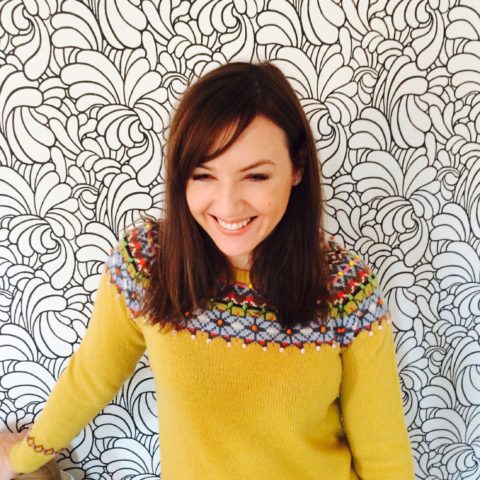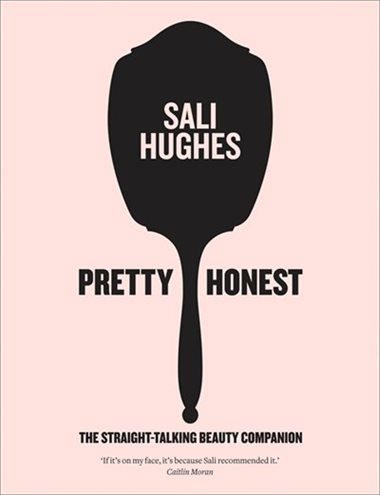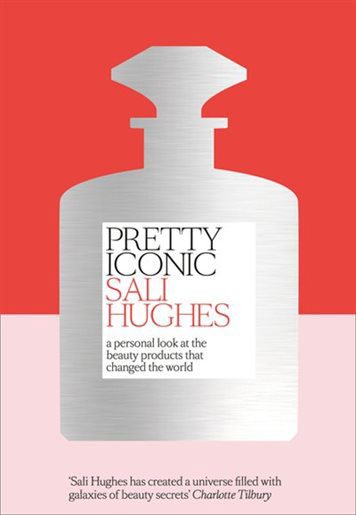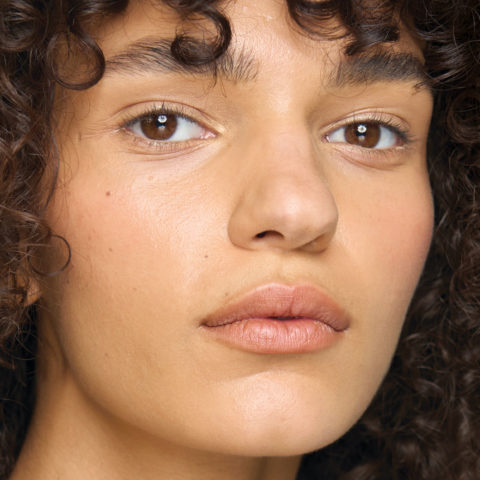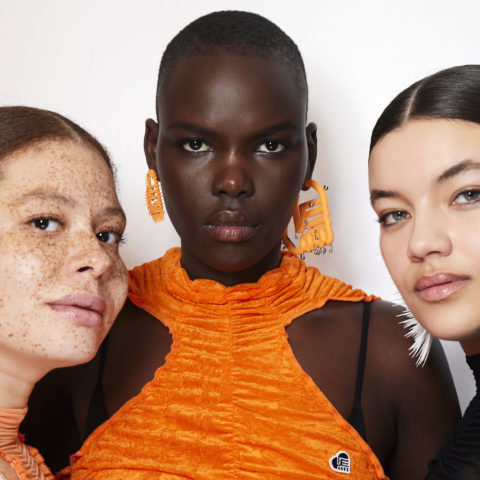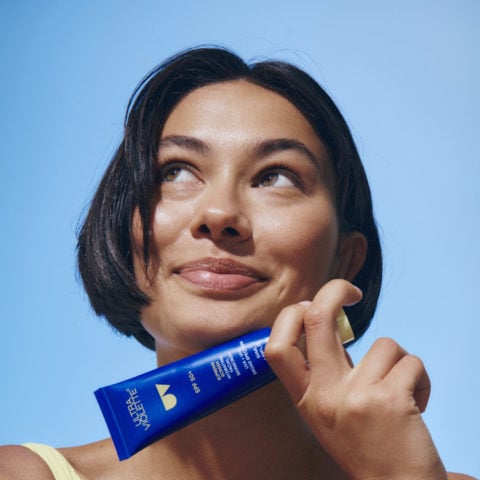Sali Hughes On the Past, Present and Future of the Beauty Industry
"Over the past five years, beauty has embraced inclusivity, transparency and instant results. But where to next?" asks Sali Hughes.
My love affair with beauty began 38 years ago as I sat on my grandmother’s bed and watched her put on makeup. As she dusted Max Factor Creme Puff powder across her nose and slicked on waxy magenta lipstick, I looked on in awe, lost instantly to the cause. It gives me huge satisfaction and comfort to know that now, at the age of 42, I can still go out and buy the same powder and then create similar magic on my own face—especially since so much else in beauty has changed beyond all recognition.
We no longer glance briefly at our faces as we get ready to go out or take memory snaps only on vacation. We now see ourselves constantly on Instagram, Facebook, Snapchat and WhatsApp, hoping to survive the unending forensic commentary from others. Once concerned primarily with everyday looks on everyday women, the beauty industry is now catering to millions of amateur models and makeup artists, each of us wanting to appear flawless for our social media audience.
Base products must instantly perfect with no flashback; eyeshadows should blend as seamlessly as those of a YouTube vlogger; and lipstick no longer merely colours the mouth but, ideally, enlarges it, mimicking the effects of the injectable lip fillers our online stars so implausibly deny getting. As we approach the next decade, cosmetic procedures will become ever more sophisticated, accessible, affordable and imperceptible and brands will be under increasing pressure to compete with their results. We have reached the end of the “see effects in eight to 12 weeks” era and dispelled brand loyalty. The future of skincare is in high concentrations of actives, fast, proven results and interval training, where consumers will hothouse a product and then move on to another at plateau.
The Korean beauty industry, with its innovation, vision and research tech, has arguably made as big an impact as the Internet that gave it its global audience of consumers. Thanks to South Korea, Japan and China, we in the West are able to demand more than ever from our products, from the finest-textured SPFs to perfecting colour correctors to pigment-saturated liquids to silken photo-finish powders. The Asian influence on Western brands has been disruptive, energizing and important, but now it’s time for the Eastern big hitters to acknowledge the universal appeal of their competitors’ products and begin to cater properly to women of colour. In 2017, there is no justification for any major brand to offer 16 shades of foundation and consider themselves close to done. I adore beauty but only on the condition that it is appreciated and valued in all its forms. Women deserve respect for their dollar.
Women also deserve the facts. Beauty fans now have an unprecedented level of knowledge, thanks to bloggers, online communities and accessible brands with a clear mandate. The revolution begun by The Ordinary, Beauty Pie and Paula’s Choice is only just gathering pace. I hope and believe we’ll see brands following their examples in labelling, claims, packaging and ethics. Furthermore, I believe that in the next two years we’ll finally see China change its unethical laws on mandatory animal testing in cosmetics. The global beauty industry wants this change, and its consumers expect it. There is no longer any justification for animal cruelty in the name of beauty or for microbeads that bring nothing to the party but sea pollution.
And as for my own dreams? Chemical sunscreens and primers that never peel or ball during blending; lip plumpers that neither sting nor fizz; high-dose vitamin C serums minus the grit; a mascara that lasts like a tubing formula but lengthens and flutters like a traditional one; the end of useless cellulite creams, bust gels and jar packaging; the return of extreme contouring to its birthplace in history; permanent grey-covering hair colourant without PPD; and a definitive cure for melasma. That’s not too much to ask for, right? I no longer believe anything is far from reach.

